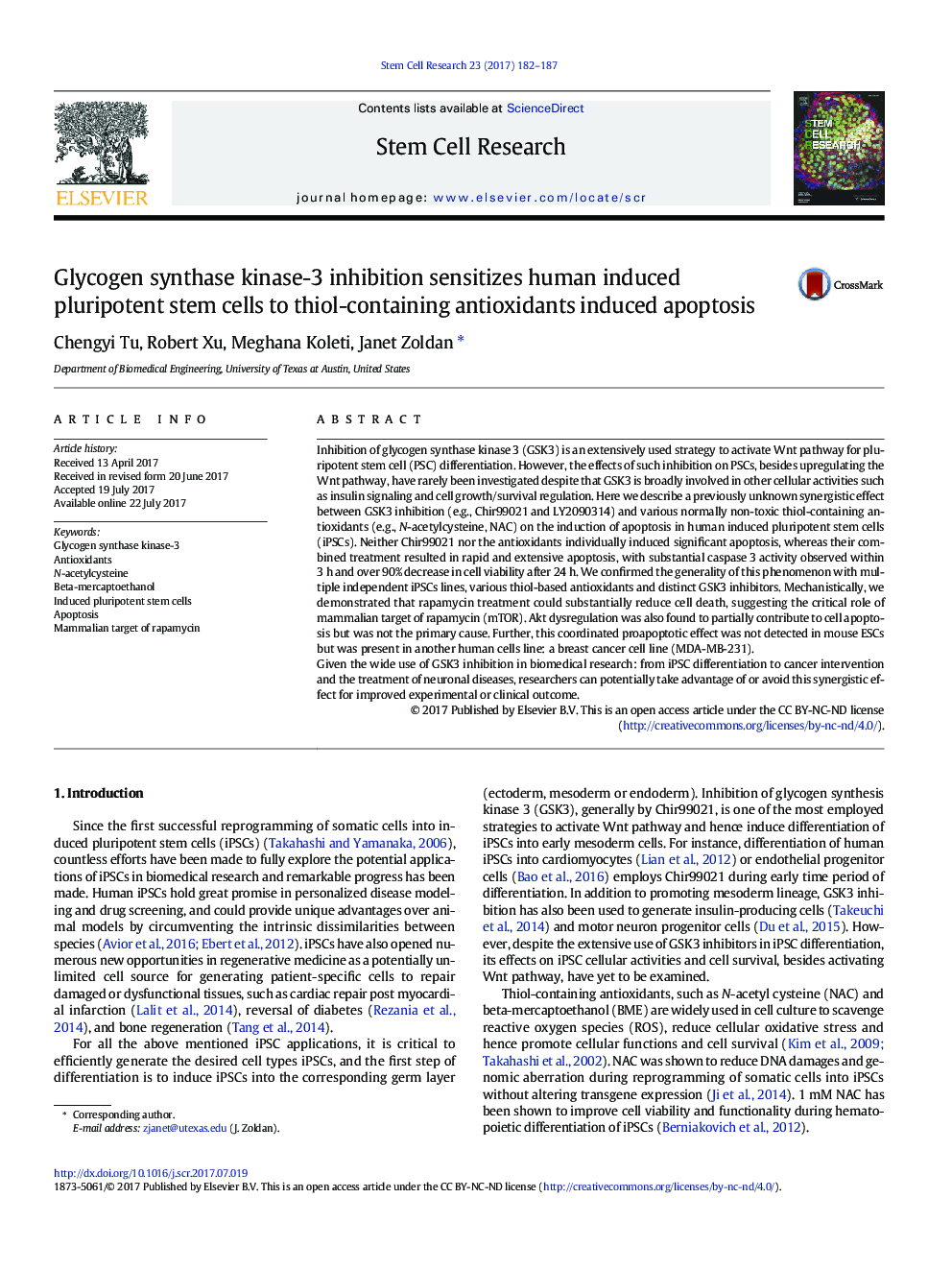| کد مقاله | کد نشریه | سال انتشار | مقاله انگلیسی | نسخه تمام متن |
|---|---|---|---|---|
| 5522600 | 1546030 | 2017 | 6 صفحه PDF | دانلود رایگان |
- Co-treatment of GSK3 inhibitor and antioxidants induce rapid iPSC apoptosis.
- Rapamycin rescues the iPSCs from the induced apoptosis.
- Dysregulation of Akt upon NAC treatment and partial rescue by insulin and IGF-1
- Similar synergistic proapoptotic effect observed in MDA-MB-231 cells.
Inhibition of glycogen synthase kinase 3 (GSK3) is an extensively used strategy to activate Wnt pathway for pluripotent stem cell (PSC) differentiation. However, the effects of such inhibition on PSCs, besides upregulating the Wnt pathway, have rarely been investigated despite that GSK3 is broadly involved in other cellular activities such as insulin signaling and cell growth/survival regulation. Here we describe a previously unknown synergistic effect between GSK3 inhibition (e.g., Chir99021 and LY2090314) and various normally non-toxic thiol-containing antioxidants (e.g., N-acetylcysteine, NAC) on the induction of apoptosis in human induced pluripotent stem cells (iPSCs). Neither Chir99021 nor the antioxidants individually induced significant apoptosis, whereas their combined treatment resulted in rapid and extensive apoptosis, with substantial caspase 3 activity observed within 3Â h and over 90% decrease in cell viability after 24Â h. We confirmed the generality of this phenomenon with multiple independent iPSCs lines, various thiol-based antioxidants and distinct GSK3 inhibitors. Mechanistically, we demonstrated that rapamycin treatment could substantially reduce cell death, suggesting the critical role of mammalian target of rapamycin (mTOR). Akt dysregulation was also found to partially contribute to cell apoptosis but was not the primary cause. Further, this coordinated proapoptotic effect was not detected in mouse ESCs but was present in another human cells line: a breast cancer cell line (MDA-MB-231).Given the wide use of GSK3 inhibition in biomedical research: from iPSC differentiation to cancer intervention and the treatment of neuronal diseases, researchers can potentially take advantage of or avoid this synergistic effect for improved experimental or clinical outcome.
Journal: Stem Cell Research - Volume 23, August 2017, Pages 182-187
